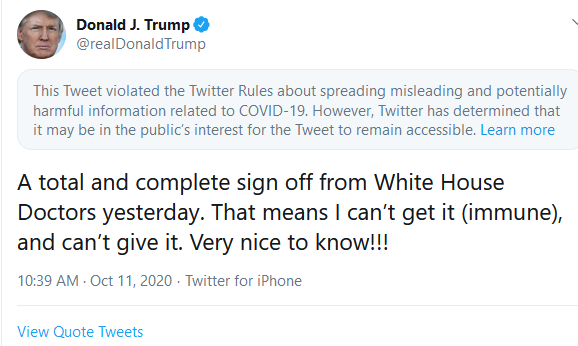As you’ve heard, Wolf Blitzer and Nancy Pelosi (D-Calif.) had a very contentious exchange on Tuesday, in which the CNN anchor demanded to know why the House Speaker was not prepared to support the White House’s offer of a $1.8 trillion stimulus package.
“Don’t let the perfect be the enemy of the good,” Blitzer told Pelosi, thus seeming to suggest that the real holdup to any deal is Democratic opposition.
But new reporting from Bloomberg News strongly suggests another angle worth investigating, if the goal is to truly get to the bottom of what might end up holding up an agreement.
And this angle points to an even bigger story: how Republicans may already be laying the groundwork to try to destroy a Joe Biden presidency, should he win the election.
The short version: A Senate GOP strategist privately confided to Bloomberg that a key Republican goal right now is to lay the groundwork to revert hard to austerity, should Biden prevail, crippling the possibility of any serious stimulus efforts next year, even amid continued economic misery.
As of now, Senate Republicans are hostile to supporting a deal even if the White House and House Democrats can reach one. The White House’s $1.8 trillion offer includes some things Democrats want, such as $1,200 checks to individuals, but Pelosi wants more money for aid to states and a national strategy against the novel coronavirus, among other things.
Senate Republicans may not even accept spending levels that the White House is proposing. Senate Majority Leader Mitch McConnell (R-Ky.) is planning a vote on a far smaller package — $500 billion for extended assistance for the unemployed and small businesses, among other things.
The Senate bill appears designed to do the minimum while giving vulnerable GOP senators a way to say they’re doing something at a moment of deep economic peril, in hopes of salvaging McConnell’s majority.
But Trump undermined that strategy by tweeting: “Go big or go home!” Now Senate Republicans risk getting split between the conservative impulse to spend as little as possible (at least on aid to distressed Americans) and Trump’s demand (for now, anyway) for more spending.
But, given that spending more now would likely boost Trump’s reelection chances, why aren’t Senate Republicans on board?
The Bloomberg report offers this remarkable clue:
A GOP strategist who has been consulting with Senate campaigns said Republicans have been carefully laying the groundwork to restrain a Biden administration on federal spending and the budget deficit by talking up concerns about the price tag for another round of virus relief. The thinking, the strategist said, is that it would be very hard politically to agree on spending trillions more now and then in January suddenly embrace fiscal restraint.
This is an anonymous source. But it accords with what all our intuitions and our understanding of recent U.S. political history tell us. Republicans almost certainly suspect Trump will lose even with a big stimulus and already hope to put an incoming President Joe Biden in a fiscal straitjacket, saddling him with the terrible politics of a grueling recovery.
A big package now under a GOP president would make that harder to get away with. That’s bad enough, but the evolving strategy here may be worse than this suggests. The calculation is probably not just about avoiding the hypocrisy of spending big now and embracing austerity under a Democratic president.
It’s also likely that a big package now would put the economy in a somewhat better position early next year, when Biden (should he win) would take over. This, too, is probably what Republicans want to avoid.
Indeed, as Eric Levitz points out, if Republicans can scuttle a robust package now, that would hand Biden a “deepening recession.” If Republicans hold the Senate and can block big stimulus measures at that point, Levitz continues, “Biden’s presidency would be over before it starts.”
And so, when McConnell chortled with glee at this week’s debate in Kentucky about the failure to pass more aid at a desperate national moment, it telegraphed what’s coming. And we’ve already lived through what happened when Republicans, led by McConnell, tried to cripple the recovery from a previous economic calamity that a Democratic president inherited from a Republican one.
Back then, McConnell calculated that if Republicans adopted a strategy of openly tailoring everything around the overarching goal of denying Barack Obama bipartisan support, Obama would take the blame for it. It’s likely McConnell is already thinking the same.
Obviously Republicans might theoretically oppose more spending to address a recession during a Biden presidency out of adherence to principle, however egregiously misguided. But notably, the GOP strategist above also telegraphs a strategy of constraining Biden by suddenly claiming to care deeply about deficits.
That’s particularly galling, given that Trump and the GOP passed a massive corporate tax giveaway that lavished enormous benefits on top earners while helping to explode the deficit. Now concern over that deficit will be used to try to cripple a Biden presidency through austerity.
Which leads to a final point. As I’ve noted, Trump campaigned in 2016 on a (fraudulent) promise to break with orthodox conservative economics, including opposition to big expenditures in the public interest, vowing to preserve safety nets and invest in job-creating infrastructure.
In many ways Trump tossed that vow aside and embraced GOP plutocracy. But now he’s suddenly desperate to secure another huge spending infusion, because he needs one to salvage his reelection hopes. So it would constitute a perverse form of poetic justice if a GOP refusal to go along — one rooted in a strategy of hamstringing a Democratic president from addressing deep national challenges — ends up contributing in some small way to Trump’s political demise.
